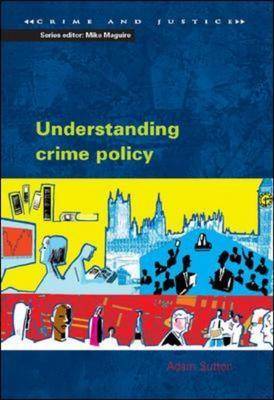Sooner or later, most people working in criminology - whether as students, researchers, policy advisers or administrators - begin to question the point of the enterprise. What difference can the discipline make to ways that societies define and try to deal with "crime" and related "threats"? How might insights generated by criminology be translated into effective, equitable policies and programs? What can criminologists do in worlds outside the academy? This book deals with these issues. Its target audience is broad: advanced undergraduate and postgraduate students in criminology, sociology, social work and related disciplines, and practitioners in relevant fields. Its aim is to explore interfaces between criminology and crime policy. In particular, "Understanding Crime Policy" asks how, and under what conditions, theory and research can translate into working programs and strategies, and to what extent criminology itself is shaped by forces in broader society. Responding to these questions, the book works through a range of issues that have dominated crime policy reform over the last thirty years.
Illicit drugs, the sex industry, family violence, public drunkenness and other "victimless" offences, crime prevention, victim support, corporate and white-collar crime all are areas where criminologists have undertaken research and advocated or tried to implement reforms. Drawing on experience from countries such as Australia, the U.K., the U.S. and the Netherlands, "Understanding Crime Policy" explores the ways relevant policy questions have been framed and debated, and asks why specific reform initiatives have succeeded or failed.
- ISBN10 0335217370
- ISBN13 9780335217373
- Publish Date 1 July 2007
- Publish Status Active
- Publish Country GB
- Imprint Open University Press
- Format Hardcover
- Pages 208
- Language English
